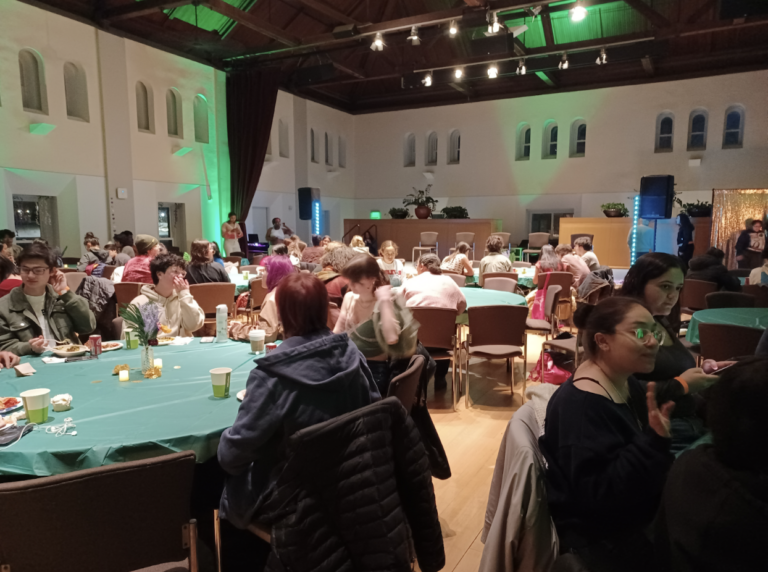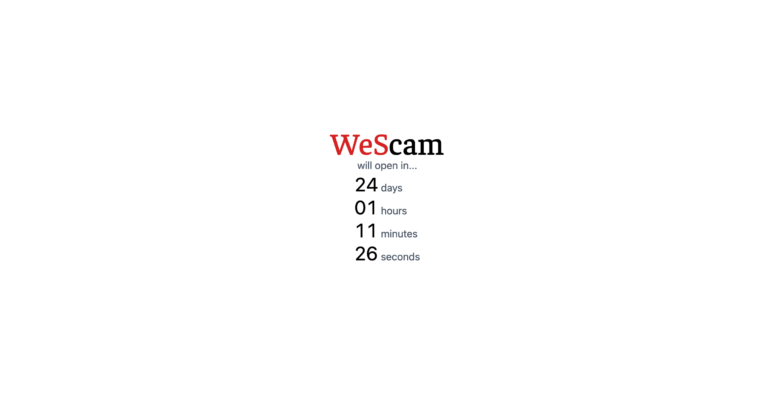Has Facebook completely knocked out WesMatch?
A few years ago, most students had a profile on WesMatch.com, a free online compatibility service created in 2002 by two students. An immediate success, the website changed its name to CampusMatch.com and expanded to include other colleges.
The network was featured in many publications, among them the New York Times, the Boston Globe and Time Magazine, and reported that 80 to 95 percent of students attending member schools had a CampusMatch profile.
But markets and consumer preferences quickly change. Ask most incoming freshmen about CampusMatch and you will probably receive some blank stares.
“What’s WesMatch?,” asked Jessie Samuelson ’09.
“Wesmatch must not be well advertised because I don’t know anyone using it and have never explored it for myself,” said Stephanie Pfeiifer ’08.
Why the sudden loss in popularity? The answer is increased competition. Once a pioneer in online networking, CampusMatch has lost its edge with the rise of newer and sleeker websites such as Facebook.com, Myspace.com, Friendster.com and CampusHook.com. While CampusMatch has a mere 26 first-year student entries this year (down from 360 sophomores), Facebook currently has more than 500 Wesleyan freshmen.
According to its website, CampusMatch “is a tool to help bring college students together in meaningful ways.” Facebook’s site claims that it “is an online directory that connects people through social networks at schools.” Sound similar? The sites share a purpose, but Facebook, launched in Feb. 2004, allows students much greater flexibility in customizing their own profile. The site networks users through online social groups, and even reminds members of friends’ birthdays and telephone numbers. In fact, Facebook has become so popular that it is currently launching a high school version of the online service.
“When Facebook hit Wes, it not only allowed you to look at people and have the option of meeting them, it also tapped into something in the human psyche more effectively than WesMatch ever did: an inherent degree of narcissism,” said Will Anderson ’07. “Listing favorites, putting up little inside quotes, showing how many friends you have, and finding your hottest picture, putting it up, and presenting others with a false impression of sexiness, is good old narcissistic fun.”
The flexibility and convenience of Facebook contrasts with WesMatch’s brief profiles and tedious questionnaires.
“I got annoyed going through the questions and having to think about all the things, like what I don’t want in somebody else,” said Jacqui Stavis ’09. “I did it as an ‘I’m bored’ sort of thing one afternoon. I didn’t realize it would take up so much time.”
While WesMatch and Facebook both function as cheery time-wasters, students have only found a practical use for the latter.
“I’d rather meet people [I might date] in person,” Stavis said. “I think it’d be awkward to meet on Wesmatch and say ‘Hey! Let’s go out!’ Facebook is more casual. The sole purpose isn’t to meet a potential relationship.”
For freshmen in particular, the rapid accumulation of Facebook friends can offset the flurry of introductions they make during orientation week.
“Facebook is introduced to students before they even set foot onto campus for their freshman year,” said Sam Grover ’08. “I don’t even know how I found out about WesMatch. Also, because Facebook has more users it’s easier to find ones friends on it. Its popularity makes it more popular.”
In addition to being more user-friendly, Facebook has signed deals with companies popular with young adults, such as Apple in order to further increase membership. Apple has sponsored its own online Facebook group called “Apple Students,” in which members can shop for products online, download iTunes songs and sign up for product discounts. “Apple Students” members may even register to win a free iPod Shuffle in weekly raffles. Such perks and marketing techniques cannot be rivaled by CampusMatch.
“Facebook is easy to use and everybody’s doing it” Pfeiffer said.
CampusMatch and Facebook are both network industries, meaning that the value of the service increases when more people use it. The more members Facebook has, the more social networking it allows for. Likewise, the less people who use CampusMatch, the less it’s worth to students.
“WesMatch was a big thing when I was a freshman. Facebook wasn’t even around then,” said William Anderson ’07. “But Facebook has inundated college culture much more than CampusMatch ever did.”
While more and more students are turning to Facebook for their online networking needs, CampusMatch hasn’t lost its charm.
“On CampusMatch you can find your soul mate!” Grover said. That’s something that gives it the edge over Facebook.“







Leave a Reply